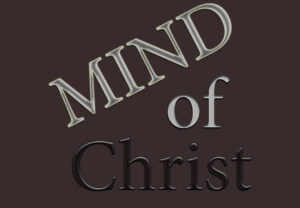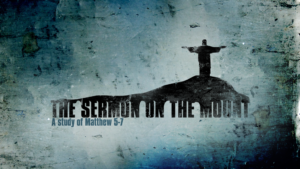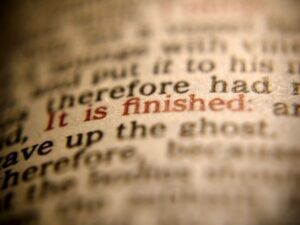I have found the book of Psalms to be a gold mine of knowledge and encouragement and if grasped and applied, wisdom. As most of you who follow this blog and ministry know, I have been teaching through Psalms for nearly two years now and a conservative estimate is that it will take five to seven more years to complete. I say that because I have made it to Psalm 39 and extrapolating from there gives me a good idea of what to expect. Aiding the five to seven year time frame is the fact that I have already taught through Psalm 119. That chapter alone took me nearly nine months. I say all of this to drive home the point that the Bible is so full of nourishment for believers that it is a shame so many Bible teachers hurry through it as if they have a schedule to maintain. In doing so they miss the rich texture and multi-layered significance of the Word.
Category Archives: Apologetics
Matthew 5:17-48 – Jesus Speaks About The Hot Topics Of His Day – Part 1
I read an article in the online edition of the Evening Leader, which is the local St. Marys daily newspaper. This article was talking about the history of the “hobo” in the St. Marys, Ohio area. Now some of you might not know what a hobo is/was. Back in the 1930’s through about the 1950’s in this area there was a traveling group of men that moved from place to place seeking work. Their main mode of transportation was the railroad that ran through the heart of town.
They would hop on the trains and go from place to place to work and earn a little money to go to the next place. They would establish hobo villages if you could call them that. They were more accurately places they would congregate for protection from the weather and to share their stories with one another. It was quite an interesting article.
TMR 129 : Dr. Mike Spaulding : Isn’t It Obvious How You Read The Bible?
I recently had the blessing to join Julian Charles on his show, The Mind Renewed. It was a wonderful conversation. I hope you will be encouraged by it. Below is the show notes from Julian’s site.
For TMR’s final programme of 2015 we are joined by Dr. Mike Spaulding, Senior Pastor of Calvary Chapel, Lima and host of Soaring Eagle Radio, for a discussion on the subject of Biblical Hermeneutics.
Isn’t it obvious how we should read the Bible? After all, if it says such-and-such, surely it means such-and-such, and that’s the end of the matter? Or is it really always quite so straightforward? Drawing upon his many years of study, grounded in the context of pastoral ministry, Dr. Spaulding guides us through the maze of biblical hermeneutics – observation, interpretation and application – and shares with us some invaluable tools that can help us unlock the plain meaning of the Scriptures.
Click here to listen.
Scripture and the Authority of God in the 21st Century – Part 2
Part Two – The Authority of God Historically in American Culture
As late as 1873 God’s authority and the supremacy of the Bible was raised as an unassailable tower of strength. In that year retired President of Yale, Reverend Theodore Woosley, in a speech to the Evangelical Alliance proclaimed, “In what sense can this country be called a Christian country? In this sense certainly, that the vast majority of the people believe in Christ and the Gospel, that Christian influences are universal, that our civilization and intellectual culture are built on that foundation . . .”[1] John Warrick Montgomery paints a very accurate picture of the influence of Christianity on life in America that supports Woosley’s contention.[2] He suggests that because American culture was influenced from its very inception by Christian theism there existed a depository of values from which Americans drew. Through the early 20th century America utilized this “inherited capital” of Christianity as a vanguard of sorts to draw upon when answering the questions of life that resulted from societal turmoil. Eventually however, the forces unleashed in the Enlightenment, most notably empiricism coupled with scientific inquiry informed by naturalism managed to shake off what was viewed as religious constraints.
Scripture and the Authority of God in the 21st Century
This article explores the subject of Scripture and the Authority of God in the 21st Century. Part one will discuss the authority of God understood within Christian theism generally and historically. Part two will discuss the authority of God historically within American culture. Part three will consider God’s authority within 21st century postmodern America as that philosophical system increasingly dominates most scholarly activities today. Part four will be a Christian theistic response to the conditions discussed in part three.




